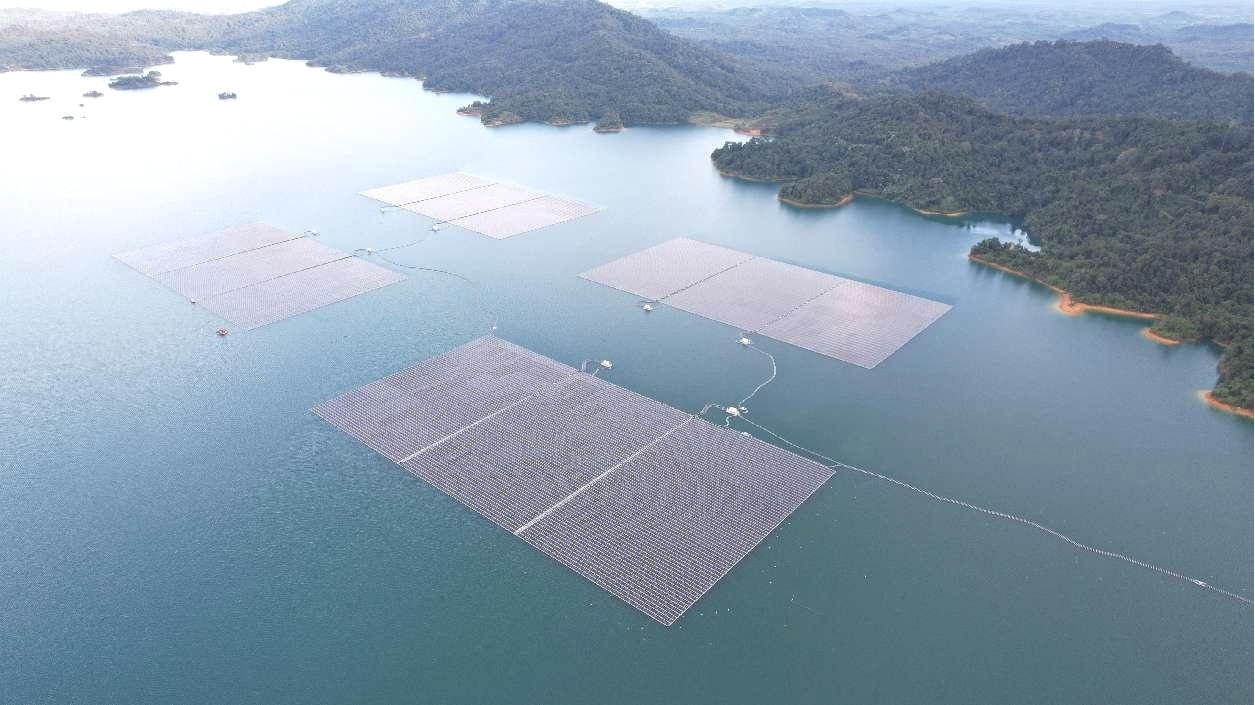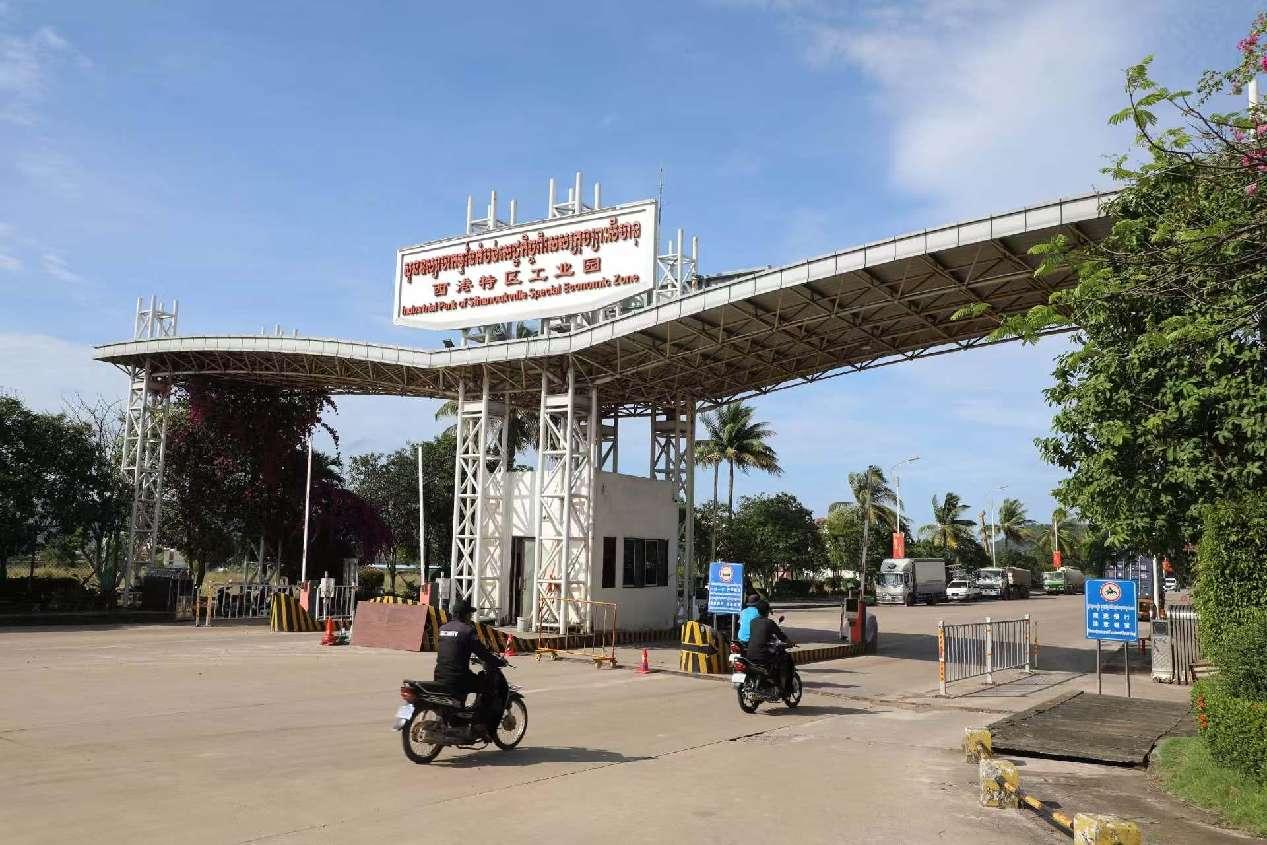




- BRNN
- BRI News
- BRNN News
- Database
Official Documents Polices and Regulations
Inter-government Documents International Cooperation BRI Countries
Business Guide Economic Data BRI Data
Trade
Investment Projects Latest projects
Cases - Content Pool

Citizens of Hanoi, capital of Vietnam, pose for a picture on a train of the Cat Linh-Ha Dong metro line constructed by a Chinese company, the first metro line in the Vietnamese capital city. (Photo by Sun Guangyong/People's Daily)
From April 14 to 18, Chinese President Xi Jinping paid state visits to Vietnam, Malaysia, and Cambodia. During the visits, Xi delivered a strong and principled message: China, as a major country, is committed to upholding free trade, opposing unilateral bullying, and building a community with a shared future for mankind. His remarks, framed around responsibility and mutual benefit, found a receptive audience across the region, reinforcing confidence in advancing unity and cooperation among nations.
Trade wars and tariff wars undermine the legitimate interests of all countries in the world, especially developing countries. "What we are witnessing today is not an honest reckoning with the imperfections of globalization, but a retreat into economic tribalism," Malaysian Prime Minister Anwar Ibrahim said during Xi's visit, echoing a sentiment increasingly shared across the globe.
At a moment when many nations are seeking stability and predictability, rejecting unilateral bullying and the law of the jungle, Xi's visits sent a clear signal of China's firm commitment to multilateralism and the rules-based international trading system. China is increasingly recognized as a staunch advocate of free trade, a defender of developing countries' interests, and a driving force for regional cooperation.
Amid rising global uncertainty, China has always been a rational, strong, and reliable partner.

An aerial drone photo shows the power plant built by China Energy Engineering Group Jiangsu Power Design Institute Co., Ltd. in Sarawak, Malaysia, with an installed capacity of 50 MW. (Photo provided by China Energy Engineering Group Jiangsu Power Design Institute Co., Ltd.)
In Vietnam, Xi emphasized that both China and Vietnam are beneficiaries of economic globalization, and the two sides should strengthen strategic resolve, jointly oppose unilateralism and bullying practices, and work together to uphold the global free trade system and maintain the stability of industrial and supply chains.
In Malaysia, he urged joint efforts to reject decoupling, supply disruption, "small yard, high fence" and tariff abuse with openness, inclusiveness, solidarity and cooperation. He also called for countering the law of the jungle where the strong prey on the weak with the Asian values of peace, cooperation, openness and inclusiveness, and address instability and uncertainty in the world with the stability and certainty of Asia. His message offered a clear sense of direction for navigating the headwinds and uncertainties of today's global landscape.
In Cambodia, Xi said that China and Cambodia, important forces in the Global South, should stick to the common values of peace, solidarity and cooperation. He called on both sides to oppose unilateral bullying and practice true multilateralism.
Aligning with the trend of the times and the common aspirations of nations, China's proposals are increasingly viewed not only as a source of stability, but as a blueprint for long-term cooperation and development.
Unilateralism and hegemonism receive no support of the people, and no country wants to return to isolation.

Photo shows a gate of the Sihanoukville Special Economy Zone (SSEZ) jointly ventured by Chinese and Cambodian investors. (Photo by Cao Shiyun/People's Daily)
Vietnam said it is ready to strengthen coordination and cooperation with China, uphold multilateralism and the Five Principles of Peaceful Coexistence, and safeguard international trade rules.
Malaysia said that it values China's consistency and will remain an unwavering and principled friend to China, guided by the wisdom of history and the promise of the future. It noted that ASEAN will not endorse any unilaterally imposed tariffs, and will promote collective advancement through cooperation to maintain economic growth.
Cambodia also said that it is willing to strengthen coordination and cooperation with China to safeguard their common interests.
These converging voices and growing consensus reflect a shared determination to safeguard regional cooperation and uphold international fairness and justice amid mounting external disruptions.
In the face of global challenges, China remains a partner and enabler, demonstrating the responsibility of a major country committed to mutual benefit and common good. Amid rising protectionism, China continues to expand high-level opening up and work hand in hand with all countries - especially with neighboring countries - to advance modernization.
During Xi's visits, China's first-quarter economic data were released, showing a 5.4 percent year-on-year GDP growth. As a sign of steady momentum, the figure also underscores the broader opportunities for economic cooperation. China's vast domestic market remains open to its neighbors and welcomes more high-quality products from ASEAN countries - a gesture that bolsters regional confidence at a time of global economic uncertainty.
Among the tangible outcomes of Xi's visits was the launch of the China-Vietnam railway cooperation mechanism, which is expected to inject new impetus into the development of the China-Indochina Peninsula Economic Corridor. In Malaysia, both sides agreed to become a pacesetter for regional cooperation on new quality productive forces - part of broader efforts to advance each country's modernization goals. Responding to Cambodia's development needs, China put forward two cooperation plans, the Industrial Development Corridor and the Fish and Rice Corridor, to support Cambodia's growth through tangible cooperation.
International observers note that China advocates for free trade and mutual respect, and maintains a stable and consistent foreign policy. Its engagement with other countries is never transactional, but is based on long-term partnership and mutual benefit. This approach has helped solidify its role as a stable economic partner and a key driver of growth across Southeast Asia.
Prosperity, to endure, must be shared. China is ready to work with regional countries to uphold fairness and justice, move forward by following the logic of historical progress, and develop by riding the tide of development of the times. They will navigate shared challenges through solidarity and cooperation, and safeguard the promising future of Asia. Faced with the complex and volatile international environment, China will firmly be a force for peace, stability and progress in the world.

Tel:86-10-65363107, 86-10-65368220, 86-10-65363106